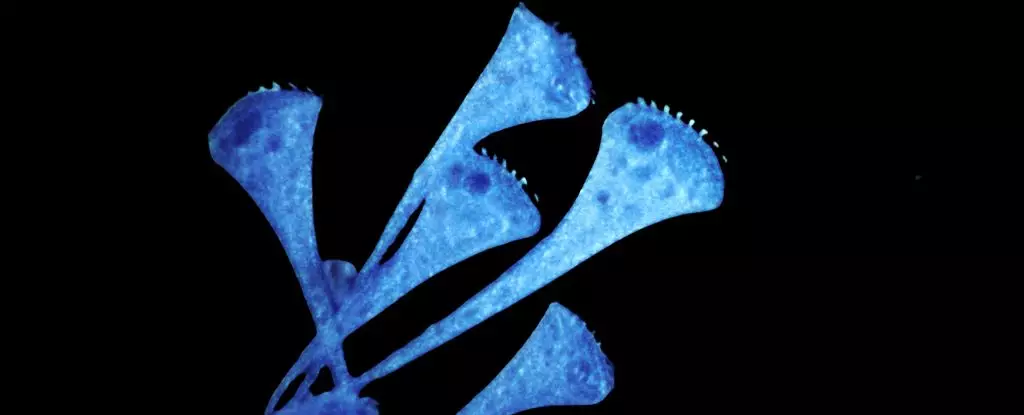The intricate dance of cellular life has long been a subject of fascination among biologists and neuroscientists alike. Recent breakthroughs have ignited a tantalizing inquiry into the learning capabilities of individual cells, a phenomenon that traditionally has been attributed to complex organisms possessing nervous systems. Research led by prominent scientists such as Jeremy Gunawardena from Harvard Medical School has unearthed a remarkable form of learning known as habituation, which raises profound questions about the cognitive abilities at play within unicellular organisms and mammalian cells. Instead of being passive entities, these microcosmic building blocks of life may actually exhibit complex forms of memory and learning that challenge our understanding of consciousness itself.
Habituation is a well-documented form of learning characterized by a diminished response to a repeated, non-rewarding stimulus. Commonly observed in both humans and animals, this phenomenon explains behaviors like a wild animal becoming indifferent to human presence or the gradual fading of a peculiar smell in a room. It seems that the essence of habituation extends beyond the realm of beings with fully developed brains into the cellular domain. The work of researchers, including neurobiologist Lina Eckert from the Max Planck Institute, demonstrates that complex molecular networks within cells may govern their ability to adapt to stimuli through this process.
Eckert and her team employed sophisticated computational modeling techniques to analyze molecular interactions in both mammalian cells and a type of unicellular organism known as a ciliate. Their studies unveiled four distinctive molecular networks capable of exhibiting a unique double-response behavior; the slower response in these networks effectively allows cells to recalibrate their reactions to stimuli over time. Such findings hold significant implications, suggesting that at least some cells possess a form of ‘cellular memory’ that can adaptively shape responses to external influences.
The possibility that cells can exhibit memory-like characteristics is groundbreaking. Rosa Martinez from the Centre for Genomic Regulation elucidates that this cellular memory system enables cells to modulate their reactions dynamically, which could lead to varying degrees of responsiveness based on past interactions. Essentially, when the slower dissipating response to a stimulus dominates, it can suppress immediate reactions, creating a period of habituation. This insight enhances our understanding of how cells operate not just as reactive agents but as processes that can ‘remember’ and adapt for the future.
Despite these promising findings, researchers are cautious as they seek to verify their claims in living cells. Previous evidence of habituation observed in the ciliate *Stentor coeruleus* gives credence to these cellular learning capabilities but also signals the need for further exploration. The potential ramifications of understanding cellular memory extend beyond mere academic interest; they may very well parallel critical advancements in medicine and therapeutic interventions.
One particularly intriguing aspect of this research is its potential to inform cancer treatment strategies. Gunawardena alludes to an analogy between cellular habituation and a type of cognitive distortion, suggesting that the malignant cells may cloak themselves from the immune response akin to a delusion. If the mechanisms of cellular habituation can be fully grasped, there exists the possibility of re-engineering immune cells to recognize and respond appropriately to tumor cells as harmful invaders, shedding light on promising avenues for immunotherapy.
Professor Gunawardena’s enthusiasm reflects an ambition to untangle these complex networks and harness knowledge for therapeutic advancements. By manipulating how immune cells perceive their environments, there is a prospect of transforming our approach to cancer treatment from passive observation to proactive intervention.
This revelation is merely the tip of the iceberg as the ongoing exploration of cellular learning continues to challenge established scientific paradigms. The debate over cognitive capabilities in non-brain-bearing organisms has permeated scientific discussion for years, often overshadowed by ideological biases. As research progresses into realms of cellular awareness and responsiveness, such discoveries promise to redefine our understanding of intelligence, not just in large animals, but in all forms of life. The future of cellular biology and neurosciences is likely to unveil even more secrets about the intricate symphony of life at the most fundamental levels.


Leave a Reply